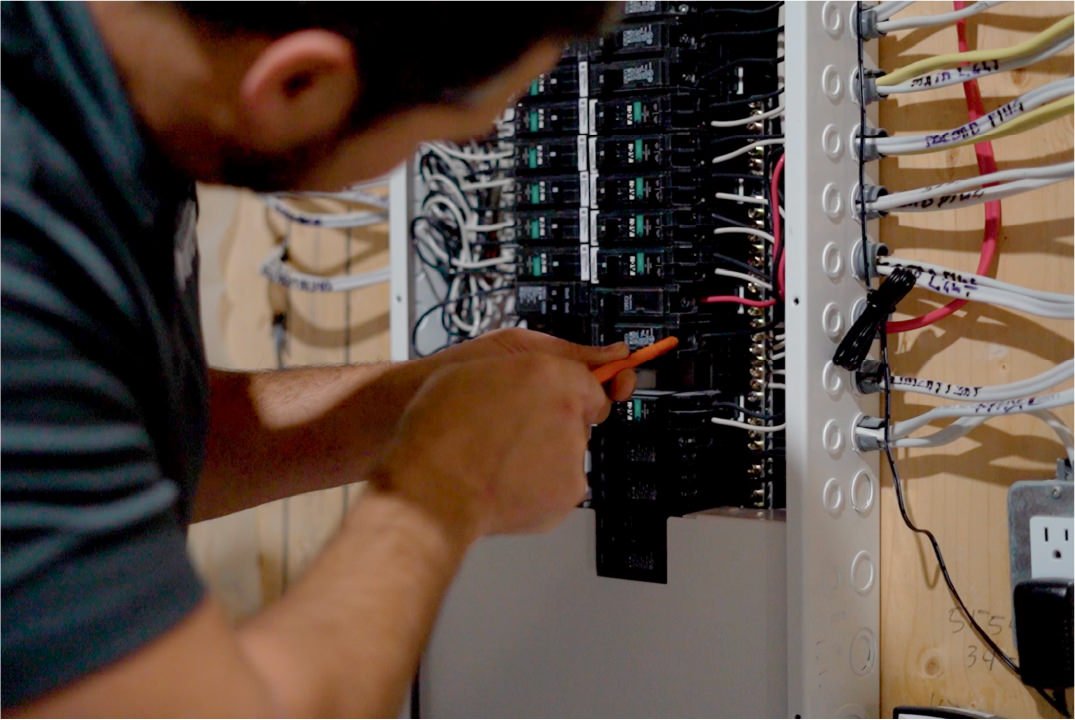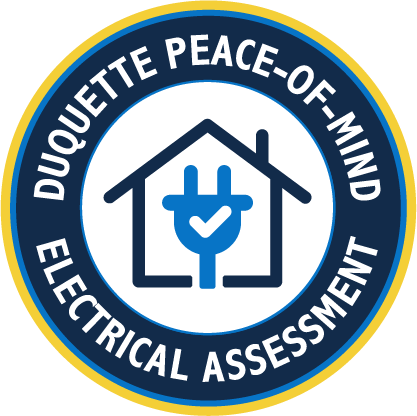Ask the Electrician
Our most frequently asked questions and some valuable tips for homeowners.
Knowledge is key.
We aim to be transparent with our clients. Let us show you what you should know about your electrical in your home.
-
Buying your first home can be both exciting and nerve-wracking. It marks a significant milestone in your life but also comes with a considerable financial investment. Before finalizing this major purchase, it is essential to ensure that every aspect of the house is thoroughly inspected. One crucial step is having Duquette Électrique conduct a comprehensive electrical assessment.
This evaluation can provide valuable insights into the condition of the electrical system in the prospective home, helping you make an informed decision. By entrusting Duquette Électrique with this task, you can have peace of mind knowing that the electrical components are safe, up to code, and functioning correctly in your new home.
Click here for information on our Peace-of-Mind Home Assessment.
-
Buying an older home can present its own set of challenges, often including outdated wiring or previous DIY electrical work that may not meet current safety standards. These issues can lead to costly repairs or even pose significant safety risks to homeowners.
At Duquette Électrique, we understand the importance of ensuring a home is not only functioning properly but also safe for its occupants. Our team of experienced professionals can conduct a thorough home assessment to identify any electrical concerns and provide solutions to give you peace of mind in your new investment.
-
Did you know that Duquette Électrique can help you design a reliable and cost-effective electrical plan tailored to your new home?
Planning ahead can save money down the road. Our team of experts is dedicated to ensuring that your electrical systems are not only safe but also optimized for efficiency. By working closely with you, we can customize a plan that suits your specific needs and integrates seamlessly with the layout of your home. Whether you are looking to minimize energy consumption, maximize functionality, or incorporate the latest smart technologies, we have the knowledge and experience to bring your vision to life.
-
Lights flickering: This is typically a sign of a loose connection which could cause a fire in the home.
Intermittent power / fluctuation: Causing certain areas in your home to lose power intermittently / loose connection.
Burn marks on outlets: High usage of plugs can get worn out . If you notice the cord is loose in the receptacle it is time to change the plug.
Damaged switch causing an arch / spark
Trees close to power line / overhead service: Keeping trees trimmed is essential.
Bent or crooked mast / overhead service: Sometimes these can get damaged from tree branches falling or ice and snow over winter.
Use caution when dealing with an electrical issue. Call an electrician if you believe there is a serious issue in your home.
-
Knob and Tube Wiring
Knob and tube wiring is a type of electrical wiring that was commonly used in older homes from the 1880s to the 1940s. It consists of ceramic knobs that support wires and tubes that protect wires as they pass through framing members. Knob and tube wiring is outdated and can be dangerous as it is not grounded and does not meet modern electrical codes. The risks associated with knob and tube wiring include fire hazards and electrocution. Replacing knob and tube wiring with modern wiring is recommended to ensure safety.
Outdated Electrical Panels
An electrical panel is the central point of control for the electrical system in a home. It is where the electricity from the utility company is distributed to the circuits throughout the house. Older homes may have outdated electrical panels that cannot handle the electrical demands of modern appliances and electronics, which can cause the panel to overheat and potentially start a fire. Signs of an outdated electrical panel include frequently tripped breakers, flickering lights, and a burning smell. If you suspect that your electrical panel is outdated, it is essential to have it replaced by a professional electrician.
Ungrounded Outlets
Ungrounded outlets are those without a ground wire, which is a safety feature designed to protect against electrical shock. In older homes, ungrounded outlets were common, and they pose a significant safety hazard. Without a ground wire, there is no way to prevent electrical shock in the event of a fault or surge. Replacing ungrounded outlets with grounded outlets is recommended to ensure safety.
Aluminum Wiring
Aluminum wiring was commonly used in homes built between the 1960s and 1970s as a cheaper alternative to copper wiring. However, it is no longer used in modern homes due to its risk of overheating and causing fires. Aluminum wiring is known to be prone to corrosion and expansion, which can lead to loose connections and electrical arcing. Replacing aluminum wiring with copper wiring is recommended to ensure safety.
Overloaded Circuits
Overloaded circuits occur when too many appliances or devices are connected to a single circuit, exceeding its capacity. Signs of overloaded circuits include frequently tripped breakers, flickering lights, and warm outlets or switches. Overloaded circuits can lead to overheating, which can cause a fire or damage to appliances and devices. To prevent overloaded circuits, it is essential to distribute the load across multiple circuits and avoid connecting high-wattage appliances to the same circuit.




